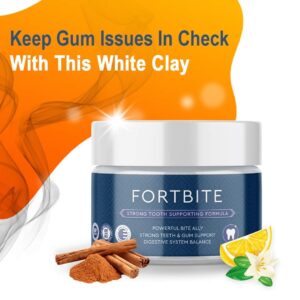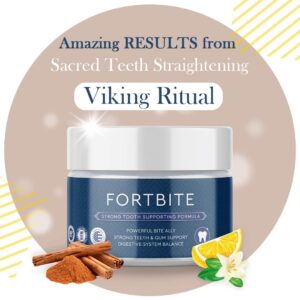What healthy food makes your teeth strong?
Several healthy foods can help make your teeth strong and support overall dental health. These foods are rich in essential nutrients like calcium, phosphorus, vitamin D, vitamin C, and antioxidants. Here are some top choices:
Dairy Products
- Milk: High in calcium and vitamin D, which are essential for strong teeth and bones.
- Cheese: Contains calcium and casein, a protein that helps fortify tooth enamel.
- Yogurt: Rich in calcium and probiotics, which can benefit gum health.
Vegetables
- Leafy Greens: Spinach, kale, and other greens are high in calcium and folic acid, which help maintain strong teeth and gums.
- Carrots: Crunchy texture stimulates saliva production, and they are rich in vitamin A, important for tooth enamel.
- Celery: Acts as a natural toothbrush by scraping food particles and bacteria away from teeth, also high in water and fiber.
Fruits
- Apples: High water content and fibrous texture help cleanse teeth and gums.
- Strawberries: Contain malic acid, which can help remove surface stains on teeth and are rich in vitamin C.
- Oranges: Provide vitamin C, which strengthens blood vessels and connective tissues, reducing inflammation and slowing the progression of gum disease.

Nuts and Seeds
- Almonds: High in calcium and low in sugar, making them good for teeth.
- Walnuts: Provide a range of nutrients, including calcium, fiber, folic acid, iron, magnesium, vitamin B6, and zinc.
- Sesame Seeds: High in calcium and help to scrub away plaque.
Protein Sources
- Fish: Fatty fish like salmon are rich in vitamin D, which helps the body absorb calcium effectively.
- Lean Meats: Provide phosphorus, which helps maintain tooth enamel.
- Eggs: Contain vitamin D and phosphorus, important for dental health.
Other Foods and Drinks
- Green Tea: Contains polyphenols that can help reduce plaque and fight bacteria in the mouth.
- Water: Essential for overall health, helps wash away food particles and keeps saliva levels high.
- Whole Grains: Foods like brown rice, whole wheat bread, and oatmeal provide B vitamins and iron, supporting healthy gums.
Incorporating These Foods
Incorporate a variety of these foods into your diet to ensure you are getting a balanced intake of the necessary nutrients for dental health. Here are some tips:
- Include dairy in your meals, such as yogurt for breakfast or a slice of cheese as a snack.
- Add leafy greens and crunchy vegetables to salads and sandwiches.
- Snack on nuts or seeds instead of sugary snacks.
Maintaining a diet rich in certain nutrients can help keep your teeth strong and healthy. Here are some foods that are particularly beneficial for dental health:
Foods Rich in Calcium
- Dairy Products: Milk, cheese, and yogurt are excellent sources of calcium, which is essential for strong teeth and bones. Cheese also stimulates saliva production, which helps clean teeth and neutralize acids.
- Leafy Greens: Vegetables like kale, broccoli, and spinach are high in calcium and also contain folic acid, which has been shown to improve gum health.
- Almonds: These are a good source of calcium and protein while being low in sugar, making them an excellent snack for dental health.
Foods Rich in Phosphorus
- Fish: Salmon, tuna, and other fatty fish are high in phosphorus, which works with calcium to build strong bones and teeth.
- Meat and Poultry: Chicken, turkey, and lean cuts of beef provide phosphorus and protein, essential for maintaining tooth structure.
- Eggs: These are another good source of phosphorus and also provide protein and vitamin D.
Foods Rich in Vitamin D
- Fatty Fish: Salmon, mackerel, and sardines are rich in vitamin D, which helps the body absorb calcium and phosphorus.
- Fortified Foods: Some dairy products, orange juice, and cereals are fortified with vitamin D.
- Mushrooms: Certain varieties, such as shiitake and maitake, can provide a good amount of vitamin D, especially when exposed to sunlight.
Foods Rich in Vitamin C
- Citrus Fruits: Oranges, grapefruits, lemons, and limes are high in vitamin C, which is essential for gum health. However, be mindful of their acidity and rinse your mouth with water after consuming them.
- Berries: Strawberries, blueberries, and raspberries are rich in vitamin C and antioxidants, which help maintain healthy gums and protect against inflammation.
- Bell Peppers: These are high in vitamin C and are less acidic than citrus fruits.
Foods Rich in Vitamin K
- Leafy Greens: Spinach, kale, and collard greens are good sources of vitamin K, which helps with bone density and dental health.
- Broccoli: This vegetable is high in vitamin K and also contains calcium and other nutrients beneficial for teeth.
Foods Rich in Antioxidants
- Green Tea: Contains polyphenols that can reduce plaque formation, prevent gum disease, and fight bad breath.
- Nuts and Seeds: Almonds, walnuts, and flaxseeds are rich in antioxidants, healthy fats, and other nutrients that support oral health.
Foods That Stimulate Saliva Production
- Crunchy Fruits and Vegetables: Apples, carrots, celery, and pears have a high water content and require a lot of chewing, which stimulates saliva production and helps clean teeth naturally.
- Cheese: Apart from being rich in calcium, cheese stimulates saliva production.
Foods Rich in Fluoride
- Tap Water: Many communities add fluoride to their water supply, which can help strengthen teeth and prevent decay.
- Tea: Some types of tea, especially green tea, contain fluoride.
Overall Balanced Diet
- Whole Grains: Brown rice, whole wheat bread, and oatmeal provide essential nutrients and fiber, promoting overall health, including oral health.
- Lean Proteins: Such as chicken, turkey, and beans provide the necessary building blocks for healthy tissue repair and maintenance.
Maintaining a diet that includes these nutrient-rich foods, along with good oral hygiene practices and regular dental check-ups, can help keep your teeth strong and healthy throughout your life.

Can diet improve dental health?
Yes, diet plays a crucial role in improving and maintaining dental health. Consuming a balanced diet rich in essential nutrients helps protect teeth and gums and can reduce the risk of dental problems such as cavities, gum disease, and enamel erosion. Here are some dietary tips to improve dental health:
Foods That Promote Dental Health
Dairy Products
- Examples: Milk, cheese, yogurt.
- Benefits: Rich in calcium and phosphates, which strengthen teeth and bones. Cheese also stimulates saliva production, which helps neutralize acids in the mouth.
Leafy Greens
- Examples: Spinach, kale, broccoli.
- Benefits: High in calcium, folic acid, and vitamins that promote oral health. They also require chewing, which stimulates saliva production.
Fruits and Vegetables
- Examples: Apples, carrots, celery.
- Benefits: High in fiber and water, these foods stimulate saliva flow and help clean teeth by scrubbing away food particles and plaque. Crunchy fruits and vegetables also massage gums and improve circulation.
Nuts and Seeds
- Examples: Almonds, sesame seeds.
- Benefits: Provide essential minerals like calcium and phosphorus. They also help stimulate saliva production and neutralize acids in the mouth.
Fish and Lean Meats
- Examples: Salmon, chicken.
- Benefits: Rich in protein and essential nutrients like phosphorus, which helps strengthen teeth. Fatty fish like salmon also provide vitamin D, which aids in calcium absorption.
Whole Grains
- Examples: Brown rice, oatmeal, whole wheat bread.
- Benefits: Contain complex carbohydrates that take longer to break down, reducing the risk of tooth decay compared to refined sugars. They also provide fiber and essential nutrients.
Green and Black Tea
- Benefits: Contain polyphenols that help reduce bacteria and acid in the mouth. Tea can also help inhibit the growth of harmful oral bacteria and reduce the risk of cavities and gum disease.
Water
- Benefits: Essential for overall health and hydration, water also helps rinse away food particles and bacteria, reduces dry mouth, and keeps the mouth clean. Fluoridated water helps strengthen tooth enamel and prevent decay.
Foods to Avoid or Limit
Sugary Foods and Drinks
- Examples: Candy, soda, fruit juices.
- Risks: High sugar content feeds harmful bacteria in the mouth, leading to acid production, tooth decay, and cavities.
Sticky and Chewy Foods
- Examples: Gummy candies, dried fruits.
- Risks: Tend to stick to teeth and are difficult to remove, providing a prolonged food source for bacteria.
Acidic Foods and Drinks
- Examples: Citrus fruits, wine, vinegar.
- Risks: Can erode tooth enamel over time, leading to increased sensitivity and decay.
Refined Carbohydrates
- Examples: White bread, pastries, chips.
- Risks: Break down into sugars quickly in the mouth, contributing to plaque buildup and tooth decay.
Alcohol
- Risks: Can cause dry mouth and reduce saliva production, increasing the risk of tooth decay and gum disease.
Healthy Eating Habits for Dental Health
- Balanced Meals: Include a variety of foods from all food groups to ensure you get the necessary nutrients for overall health and dental health.
- Limit Snacking: Frequent snacking, especially on sugary or starchy foods, can increase the risk of cavities. If you do snack, choose healthier options like fruits, vegetables, or nuts.
- Rinse After Eating: Rinse your mouth with water after eating to help remove food particles and reduce the risk of decay.
- Chew Sugar-Free Gum: Chewing sugar-free gum after meals can help stimulate saliva production and clean teeth.
- Use Fluoridated Products: Use toothpaste and mouthwash containing fluoride to help strengthen tooth enamel and prevent decay.
Conclusion
Diet plays a significant role in dental health. By incorporating nutrient-rich foods that promote strong teeth and gums, and limiting foods that contribute to decay and erosion, you can improve and maintain good oral health. Coupled with good oral hygiene practices, a healthy diet can significantly reduce the risk of dental problems and promote overall well-being.
What drink is good for strong teeth?
Certain drinks can promote strong teeth and overall oral health by providing essential nutrients and helping maintain a healthy environment in the mouth. Here are some drinks that are particularly beneficial for strong teeth:
Beneficial Drinks for Strong Teeth
Water
- Benefits: Essential for overall health, water helps rinse away food particles and bacteria, reducing the risk of tooth decay and gum disease. Fluoridated water is especially beneficial as fluoride helps strengthen tooth enamel and prevent cavities.
Milk
- Benefits: Rich in calcium and phosphorus, milk helps strengthen teeth and bones. It also contains vitamin D, which aids in the absorption of calcium.
Green Tea
- Benefits: Contains polyphenols that help reduce the growth of harmful bacteria in the mouth, decrease acid production, and prevent cavities. Green tea also contains fluoride, which helps strengthen enamel.
Black Tea
- Benefits: Like green tea, black tea contains polyphenols that can help reduce the growth of bacteria and plaque. It also has fluoride content.
Herbal Tea (Without Added Sugar)
- Examples: Chamomile, ginger, rooibos.
- Benefits: Can have anti-inflammatory and antimicrobial properties. Herbal teas without added sugars or acids are gentle on teeth and can help maintain oral health.
Unsweetened Almond Milk
- Benefits: A good source of calcium and vitamin D, which are important for strong teeth. It’s a good alternative for those who are lactose intolerant.
Fortified Soy Milk
- Benefits: Often fortified with calcium and vitamin D, making it a beneficial drink for dental health. It’s a good option for those who prefer plant-based alternatives.
Tips for Maintaining Strong Teeth with Drinks
- Avoid Sugary and Acidic Drinks: Limit consumption of sodas, fruit juices, sports drinks, and other sugary beverages as they can lead to tooth decay and enamel erosion.
- Drink Water After Meals: Rinsing your mouth with water after eating can help wash away food particles and reduce the acidity in the mouth.
- Use a Straw: When consuming acidic or sugary drinks, using a straw can help minimize contact with teeth, reducing the risk of decay and enamel erosion.
- Moderate Alcohol Consumption: Alcohol can cause dry mouth and increase the risk of oral health problems. If you do drink alcohol, make sure to stay hydrated with water.
- Fluoridated Water: Opt for fluoridated water when possible to help strengthen enamel and prevent cavities.
Conclusion
Drinking water, milk, green tea, black tea, and unsweetened plant-based milks can contribute to strong teeth and overall oral health. By choosing beverages that are rich in calcium, fluoride, and other beneficial nutrients, and by avoiding sugary and acidic drinks, you can support and maintain healthy teeth.

Which fruit is good for teeth?
Certain fruits can be beneficial for dental health due to their nutrient content and their ability to stimulate saliva production, which helps protect teeth. Here are some fruits that are particularly good for your teeth:
Beneficial Fruits for Dental Health
Apples
- Benefits: Often referred to as “nature’s toothbrush,” apples are high in fiber and water. Chewing apples stimulates saliva production, which helps rinse away food particles and bacteria. Their fibrous texture can also help scrub the teeth and gums.
Strawberries
- Benefits: Rich in vitamin C, strawberries help maintain healthy gums. They also contain malic acid, which can naturally help whiten teeth.
Kiwi
- Benefits: High in vitamin C, which is important for gum health and can help prevent gum disease. The fibrous nature of kiwi also helps clean teeth.
Oranges
- Benefits: While citrus fruits are acidic, the vitamin C content in oranges can strengthen blood vessels and connective tissues, including those in the gums. Consuming them in moderation can be beneficial, but it’s important to rinse your mouth with water afterward to neutralize the acids.
Pears
- Benefits: Pears have a high water content and help stimulate saliva production. They can also neutralize acids in the mouth, which helps reduce the risk of tooth decay.
Watermelon
- Benefits: High in water content, which helps wash away food particles and bacteria. It also stimulates saliva production, which is important for maintaining a healthy mouth.
Tips for Eating Fruits for Dental Health
- Rinse After Eating: Some fruits, especially citrus ones, are acidic and can erode enamel if left on the teeth. Rinse your mouth with water after eating acidic fruits to neutralize the acids.
- Consume in Moderation: While fruits are healthy, they contain natural sugars that can contribute to tooth decay if consumed excessively. Eat a balanced diet and maintain good oral hygiene practices.
- Pair with Cheese or Nuts: Pairing fruits with cheese or nuts can help neutralize acids and provide additional nutrients that are good for teeth.
- Maintain Good Oral Hygiene: Brush your teeth twice a day and floss daily to remove food particles and plaque.
Conclusion
Fruits like apples, strawberries, kiwis, oranges, pears, and watermelon are good for your teeth due to their high water content, vitamins, and ability to stimulate saliva production. Incorporating these fruits into your diet, while maintaining good oral hygiene practices, can contribute to overall dental health.
Is milk good for your teeth?
Yes, milk is good for your teeth due to its nutritional content and various oral health benefits. Here are some key reasons why milk is beneficial for dental health:
Benefits of Milk for Teeth
Rich in Calcium
- Importance: Calcium is crucial for building and maintaining strong teeth and bones. It helps strengthen the enamel, the outer protective layer of the teeth, making them more resistant to decay and erosion.
- Source: Milk is an excellent source of calcium, providing a substantial amount in each serving.
Contains Phosphorus
- Importance: Phosphorus works with calcium to build strong bones and teeth. It also plays a role in the repair and maintenance of tooth enamel.
- Source: Milk contains phosphorus, contributing to overall dental health.
Vitamin D Content
- Importance: Vitamin D is essential for calcium absorption. Without sufficient vitamin D, your body cannot effectively absorb and utilize calcium, which is crucial for maintaining strong teeth.
- Source: Many milk products are fortified with vitamin D to enhance calcium absorption and improve dental health.
Protein Content
- Importance: Protein helps to maintain and repair tissues in the body, including the gums and other soft tissues in the mouth.
- Source: Milk is a good source of high-quality protein, which is beneficial for oral health.
Stimulates Saliva Production
- Importance: Drinking milk can help stimulate saliva production. Saliva is essential for neutralizing acids in the mouth, washing away food particles, and providing disease-fighting substances throughout the mouth.
- Source: Milk consumption can aid in maintaining a healthy saliva flow.
How to Incorporate Milk into Your Diet
Daily Consumption
- Aim to include milk in your daily diet, either as a beverage, in your cereal, or in smoothies.
Pair with Meals
- Drinking milk with meals can help neutralize acids and wash away food particles.
Fortified Milk
- Choose fortified milk options that contain added vitamins and minerals, such as vitamin D, for additional health benefits.
Additional Tips
Rinse After Sugary Foods
- If you consume sugary foods or drinks, rinse your mouth with milk to help neutralize acids and reduce the risk of tooth decay.
Moderation with Flavored Milk
- Flavored milks, such as chocolate or strawberry milk, often contain added sugars. Consume these in moderation and maintain good oral hygiene practices to prevent tooth decay.
Conclusion
Milk is beneficial for dental health due to its rich content of calcium, phosphorus, vitamin D, and protein. These nutrients help strengthen teeth, maintain enamel, and support overall oral health. Including milk in your diet and following good oral hygiene practices can contribute to stronger, healthier teeth.